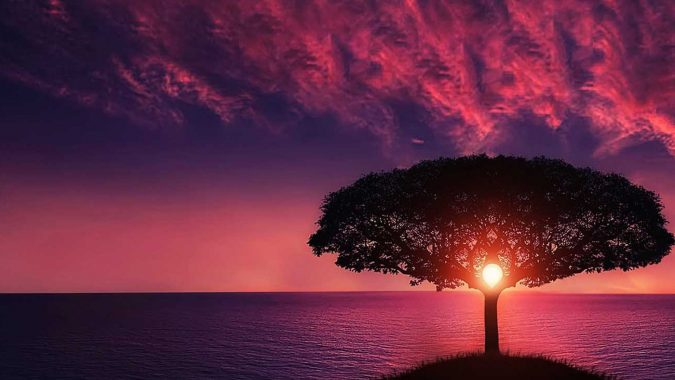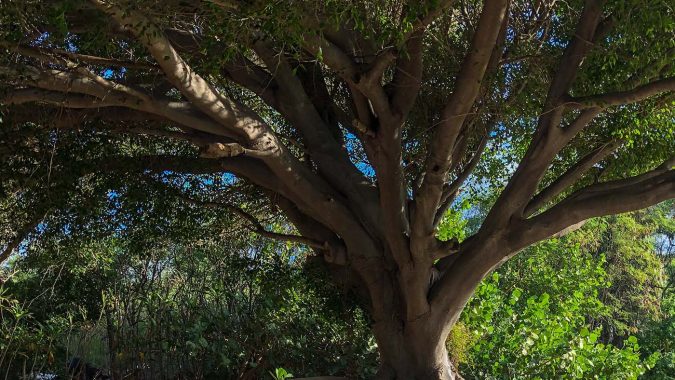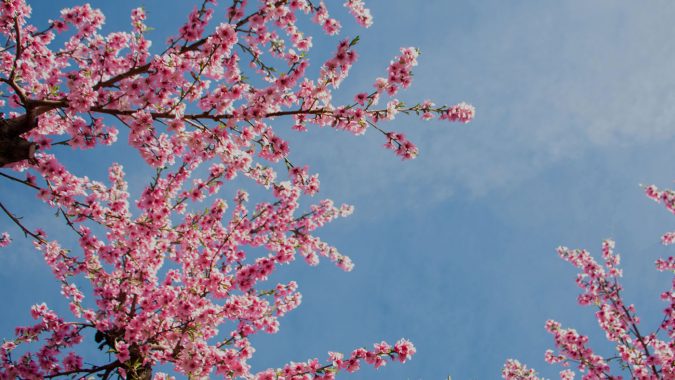
In Buddhism, we speak of different realms of existence. Based on the Lotus Sutra, a scripture that’s said to contain the final teaching of the Buddha, there are ten realms spanning from the lowest state of ignorance and suffering, to complete enlightenment. The first six realms encompass Samsara – the endless cycle of life, death and rebirth in which sentient beings are caught. From lowest to highest, they are: hell, hungry ghost, animal, human, demigod and god. Above these “mundane” six are four “saintly” realms beyond the cycle of rebirth:
- Śrāvaka Realm: In Sanskrit, sravaka means “hearer” or more generally “disciple.” Those here have been liberated from Samsara upon hearing and embracing the Buddha’s teachings – in particular, the Four Noble Truths. Existence in this realm entails continual learning, spiritual growth and development.
- Pretyakabuddha Realm:In Sanskrit, pretyakabuddha means “lone Buddha.” Those here attained supreme, perfect insight without teachers, but by realizing dependent origination (all phenomena arise in dependence on other phenomena). Existence in this realm entails discovering truth through observation, experience and meditation.
- Bodhisattva Realm: The Sanskrit term bodhisattva refers to those who have generated bodhicitta (awakening mind) and strive to attain Buddhahood for the sake of others. Those in this realm are compassionate and altruistic, and make great vows to alleviate suffering and liberate all sentient beings.
- Buddha Realm: In Sanskrit, the term Buddha means “the awakened one” or “the enlightened one.” This is the state of full and complete realization and awakening.
Dharma Master Cheng Yen points out that “although sravakas and pratyekabuddhas can develop purity of conduct and a high degree of wisdom, they can’t attain the full awakening of the Buddha. It’s only by working for the enlightenment of both self and others (as bodhisattvas do) that one gradually achieves perfect enlightenment.”
The ten realms of existence are said to be inter-penetrable, thus in each of the ten, the other nine can manifest. Master Cheng Yen reveals how this applies to our lives:
At this very moment, we can experience any of the ten realms – it all depends on the direction of our thoughts. With a compassionate, wise thought, we can be in an enlightened realm. With a greedy or stingy thought, we can be in an unenlightened one. In the course of one day, we can go through all ten realms.
If we feel that life is full of suffering and wish to learn and practice the Dharma so we can be liberated from suffering, ours is the heart of a sravaka – a spiritual practitioner who learns the Dharma through listening to and reading Buddhist teachings. Or, if by contemplating the phenomenon of the world and changes of Nature we realize how everything is impermanent and see how things arise as a product of causes and conditions, then ours is the heart of a pratyekabuddha – a spiritual practitioner who gains insights and realizations from observing the world. And, if we harbor the sincere aspiration to seek enlightenment and to help guide all living beings, ours is the heart of a bodhisattva who strives to bring people joy and free them from suffering. After their material needs are met, bodhisattvas skillfully guide them to understand life’s truths, so that they may truly liberate themselves from suffering. We can all serve as a bodhisattva here and now.
If we feel joy in our hearts as we encounter each person, and dedicate ourselves unconditionally to helping people transform their lives so they can have peace and happiness, then in that moment, ours is the heart of a Buddha. The Buddha sees all living beings as his one and only child – their pain is his pain, their happiness his happiness. Such a tender heart, like that of a loving parent, is the Buddha’s heart. Although we have yet to attain the complete enlightenment of a Buddha and reach the stage where our hearts are always transcendent and full of boundless love for all beings, we can cultivate such a heart and strive to bring it forth always.
In our daily spiritual practice, are our minds in touch with life’s truths and filled with love for all beings? Are we concerned about the suffering of others and dedicated to helping them? Do we observe everything around us mindfully with a pure heart to gain insight into natural laws? Can we, through our observations, realize the truth of impermanence in life? Do we also mindfully observe human affairs? Is our mind focused on learning the ways of Buddhas and Bodhisattvas? If the answers are yes, then we may experience all four saintly realms daily.
If we don’t have a mindset of cultivation, however, we’ll likely drift through the six mundane realms throughout our day. If we’re enjoying ourselves, taking comfort in material luxuries or immersed in feelings of satisfaction and pleasure, in that moment, we’re in the god realm which is full of wealth and pleasure. Or, we may be inspired to help others, our hearts touched by their difficulties and full of compassion, but suddenly something happens that angers us and we’re full of fury. Such a fluctuating mind, easily irritated and angered, continually reacting to external conditions, is the mind of an asura (demigod) – a being with a volatile temper.
Perhaps we’re working diligently to fulfill our responsibilities to family or work, but feel frustrated over things that don’t go successfully. That’s the state of mind of a common, mundane human being. Life in this world involves dealing with people and matters, and in the course of this, issues with others, differences in view, and things not going our way are inevitable. That’s part of life, but if we get absorbed by these issues and can’t transcend them, then we’re caught in the mundane human mindset.
Then there’s the animal realm. There are times when we don’t behave with the basic decency of a human being – in that moment, we’re just like an animal. We can experience the hungry ghost realm as well – our body needs food, but if we don’t have anything to eat, hunger is excruciating. We can be in hell too. Perhaps we’re miserable because we find our work taxing. We may be suffering due to problems in relationships, a misfortune, or physical illness. Or our hearts may be filled with anxiety and fear so we can’t feel relaxed or at peace. If we’re caught in a negative frame of mind and can’t let go or open our heart to accept the circumstances, in that moment, we’re in a personal hell.
Such are the ten realms which we can experience at any given moment – it all hinges on the direction or nature of our thoughts. This is why we truly need to take good care of our mind.
The sections in italics consists of edited excerpts of material compiled into English by the Jing Si Abode English Editorial Team, based on Dharma Master Cheng Yen’s talks.
































